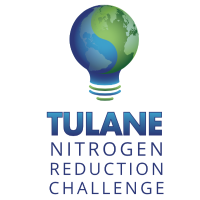In 2016, the Tulane University Nitrogen Reduction Challenge sought innovative in-field solutions to combat hypoxia. Hypoxia is the deadly deficiency of oxygen in water created by the excessive growth of phytoplankton. Nitrogen runoff from crop fertilizers is considered to be the primary cause of hypoxic “dead zones” in the world’s rivers, lakes and oceans. Such dead zones kill marine life and threaten the economies of coastal regions, including those along the Gulf of Mexico, home to the world's second-largest dead zone.
What is a Grand Challenge?
Grand Challenges are socially innovative approaches to addressing problems that natural market forces have failed to solve. In 1927 Charles Lindbergh claimed the Ortegi Prize and $25,000 when he became the first to fly from New York to Paris. Recent examples and successes include the human genome project and the Ansari Prize resulting in the introduction of commercial space travel.
As defined by the White House, "Grand Challenges are ambitious, yet achievable goals to solve society's biggest issues through innovation and breakthroughs in science, technology and implementation strategies."


